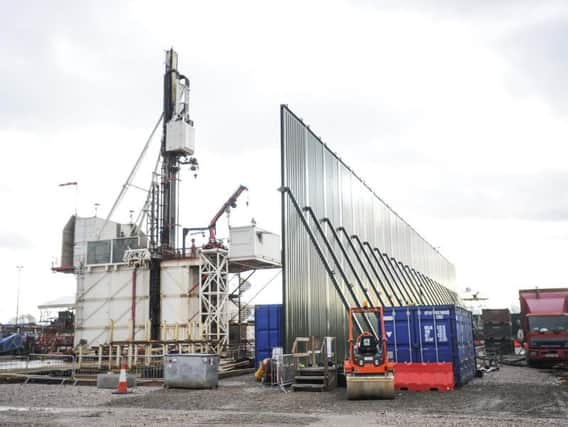‘Pro-fracking letter will mislead readers’


Your letter was, however, misleading. Your second paragraph states that: “The UK imports most of its natural gas in the form of Liquefied Natural gas (LNG). This is the only way to effectively transport gas around the world”.
This is simply not correct.
If you care to look at the British Gas website: https://www.britishgas.co.uk/the-source/our...journey/where-does-uk-gas-come-from, it states quite clearly, the UK currently produces enough gas to meet almost half of its needs (44 per cent) from the North Sea and the East Irish Sea.
Advertisement
Hide AdAdvertisement
Hide AdThe remaining nine per cent comes in to the UK by tankers in the form of Liquefied Natural Gas (LNG).
Some 91 per cent of our gas is not liquefied natural gas.
I would be really interested to know where you did your research and obtained your statistics in order to reach the conclusion you did.
Clearly nine per cent of any total is not “most of”.
There are other assertions in your letter which I also dispute but it would require more than a letter response to deal with them all.
Advertisement
Hide AdAdvertisement
Hide AdOne matter which cannot be ignored is your description of a visit to America, where you viewed a single well pad with cows grazing on the surface ... “it was not a blot on the landscape”.
Whether or not it was a blot on the landscape is not of the greatest relevance.
With any kind of mining, and probably more so with oil and gas, it is what is happening underground, out of sight, that is crucial.
The damage to geological strata and fault lines; leakage of water and chemicals and other pollutants into water tables; the escape of methane above and below ground, these are the grave concerns of those living in close proximity to fracking pads.
Advertisement
Hide AdAdvertisement
Hide AdYou state that natural gas is the cleanest hydrocarbon fuel. That is disputable. It may be cleaner than the dirtiest grades of coal, but in any case, it is not now replacing coal in the UK.
Gas is a fossil fuel contributing to the climate change which threatens to run out of control over the next two decades.
Furthermore, scientists warn of the dangers of a potential loss of methane, a potent greenhouse gas, during the production and burning of gas.
You cannot seriously equate your valid suggestion to “build up our renewable energy industries” with the advice to support the fracking industry for the sake of our children’s futures.
It does, as you say yourself, seem quite crazy.
Mrs D Kelk
Central Lancashire Friends of the Earth